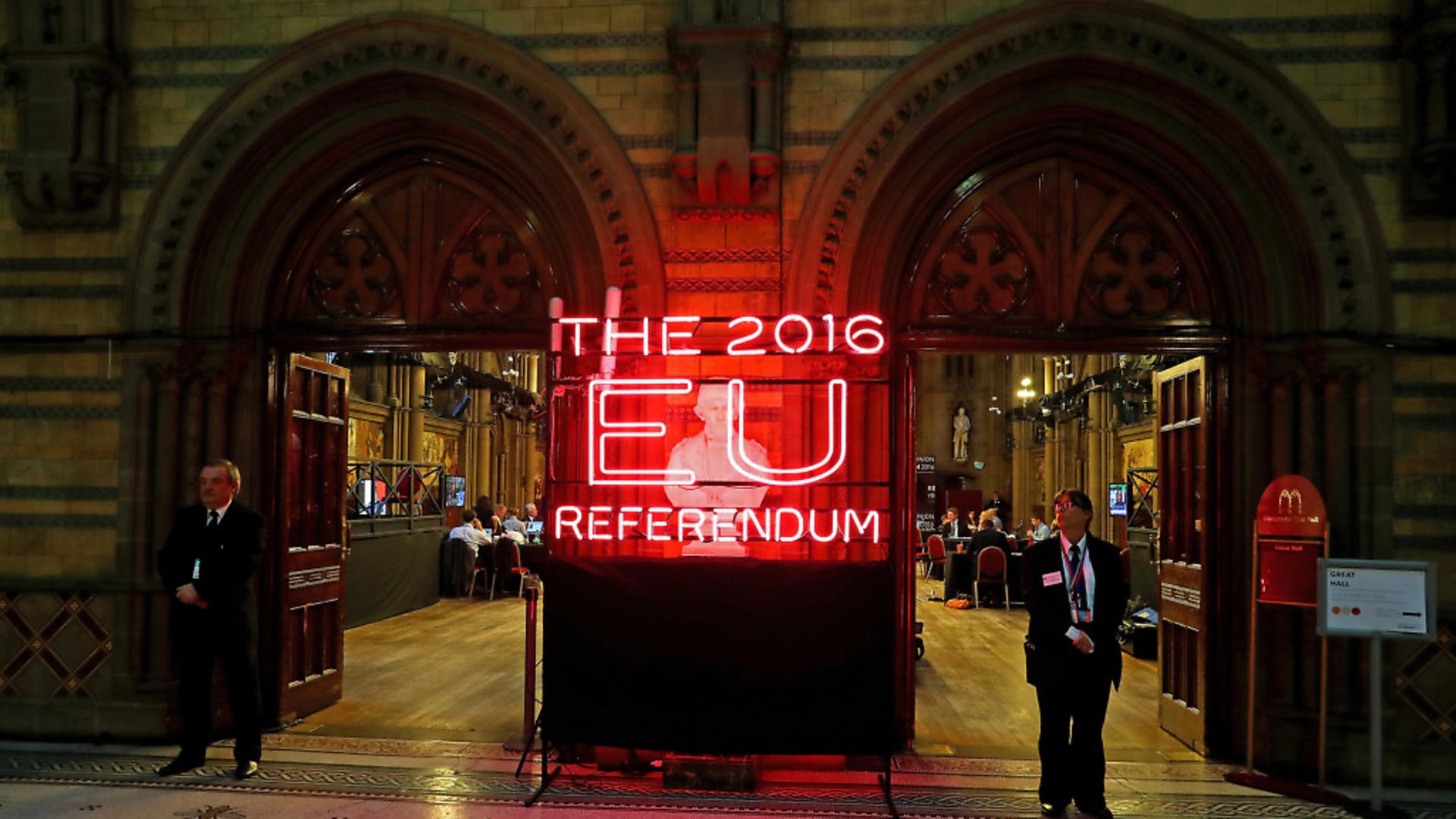
Former Labour MP PETER BRADLEY calls on the party leadership to get on board with a second Brexit referendum – and to lead the way on ensuring mistakes from the last are not repeated.
Last week John McDonnell signalled his support for a second referendum before a general election. Days later shadow business secretary Rebecca Long-Bailey announced that, at the end of an arduous journey, she’d arrived in the same place. Minutes later, Jeremy Corbyn seemed to be somewhere else. Two steps forward, one step back; one step forward, two steps back – less political positioning, more country dancing.
But when the music stops, as it soon will, we need a second referendum. We need it before a general election for simple but compelling reasons. First, a general election by definition cannot isolate the single question for which we need a clear and conclusive answer. Second, without a Labour victory, there will be no referendum and this is not a moment for blind faith. So, whatever the outcome of the current negotiations with the EU, we need to secure a second referendum within the next two weeks.
But if we’re foolish enough to repeat the exercise of 2016, we may pay a high price. Almost certainly we will exacerbate and entrench the divisions and grievances it fomented and the risk that they will spill over into civil unrest cannot be ignored.
On the other hand, we could learn from our mistakes and from the experience of others. A well-designed and managed referendum which literally brings people together in open and honest – and, as often as possible, face-to-face – debate could help us not only reach a settled conclusion but also begin the healing process we so urgently need.
Because the mess we’re in was never inevitable. Neither David Cameron’s reckless stupidity nor his careless duplicities would have mattered if, before blundering into our referendum, he had sought advice from friends and neighbours. Ireland has held 38 referendums since 1937, most recently on the highly sensitive issues of same sex marriage, abortion, blasphemy and divorce; New Zealand has had eight since 1993; Switzerland held 10 at federal level last year alone. They know how to run them. Our disastrous experiment was an object lesson in how not to.
The first lesson is that a genuinely democratic process takes time. We will need at least six months – perhaps nine – to prepare for a meaningful referendum. But if parliament can show it’s serious about securing a popular and implementable mandate, there’s no reason why our infinitely patient partners would not grant the necessary extension. They want closure almost as much as we do.
So what would such a referendum look like and what are the tools we need?
First, the government should establish, as the Irish have, an independent Referendum Commission. Whether it takes over the Electoral Commission’s responsibilities for the conduct of voting and the regulation of campaign funding and spending is immaterial. But it should have duties and powers which the Electoral Commission has not been given.
Its principal duty must be to build public confidence in and ownership of the referendum and to guarantee its integrity. So, again following the Irish example, the Commission should convene and administer a national Citizens Assembly with its membership selected at random to represent the broad cross-section of British society. Supported by an advisory panel, and based on its deliberation on evidence and argument, the Assembly will recommend to Parliament the options which should appear on the ballot paper. If it decides on more than two – for example to include a no deal option alongside whatever deal can be agreed and Remain – it should also determine by what voting system a clear decision can be reached.
Once the decision the public is to make has been established, the Commission should be responsible for providing impartial, authoritative information about the background of each proposition and its likely consequences. It should provide a copy to every household and on a dedicated website which will feature other essential information about the referendum and how to participate in it.
Critically, the Commission should also have a power which has been exercised in New Zealand by its Advertising Standards Authority, namely to intervene when campaign organisations or their supporters in the media promote inaccurate or misleading material. It should require them to publish approved corrections immediately and prominently. It should also be prepared to issue substantial fines to egregious offenders.
The Commission should also have a duty to encourage and enable public engagement. It should organise participative events in every region, make resources available to those who plan their own events and provide funding to support qualifying grassroots initiatives which seek to do the same.
Finally, given that the referendum’s outcome will disproportionately affect the lives of young people, there is a strong argument that 16-18 year-olds should have the right to participate in it. And, if European nationals settled in the UK and British expats can vote in elections to the European Parliament, they surely must also be allowed to vote on the UK’s participation in it. These are issues on which the Citizens Assembly should make its recommendation to Parliament.
No doubt these proposals can be improved upon. But they represent the bare minimum we should expect if we’re to reach an informed and decisive judgment in which the public can place its confidence.
MPs of all parties must now set aside political rivalries and factional agendas and push for a referendum and the urgent legislation required to bring it about. As the main opposition party, Labour cannot do it alone but it must lead the way for, without its support, it will not happen. Instead, there will be a hard and deeply damaging Brexit for which the Party will not soon or easily be forgiven.
– Peter Bradley is a former Labour MP for the Wrekin. He tweets at @petercsbradley.









